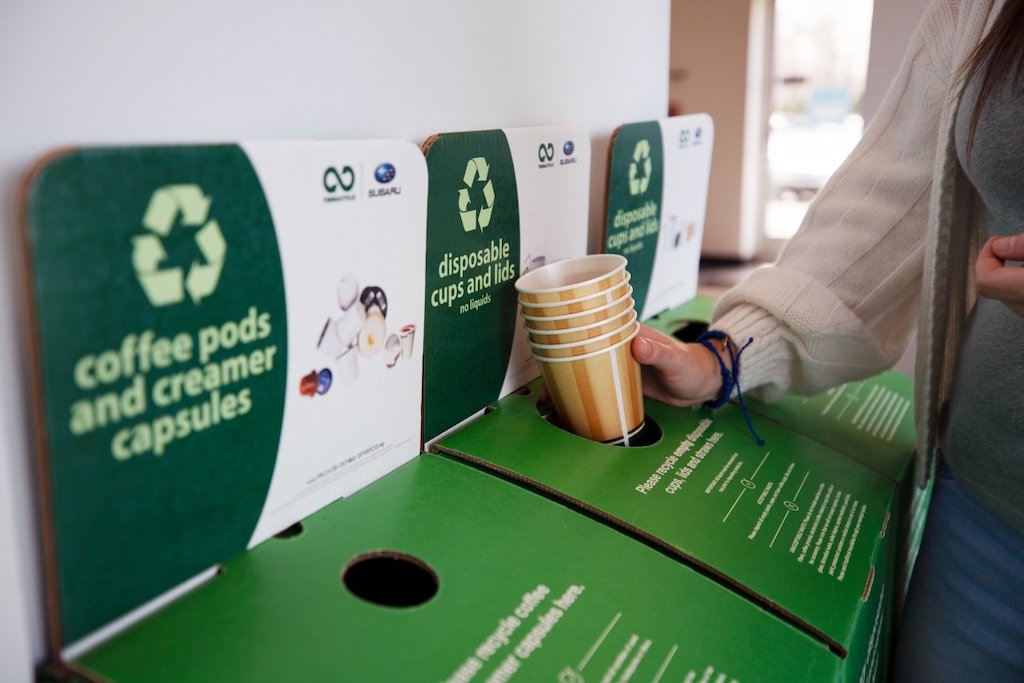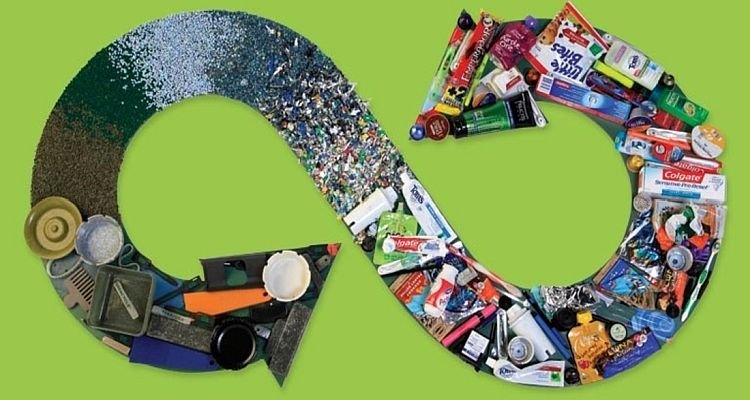TerraCycle was founded in the year 2001 by Hungarian-born founder Tom Szaky. At first, he collected food waste and sold the compost to local businesses.
Later he pivoted to processing packaging, and in 2007 got his first brand partners — Honest Tea, Stonyfield Farm, and Clif Bar — which paid TerraCycle to set up collection points for their packaging.

Since then, the company has expanded globally and has partnered with more than 500 brands for all sorts of stuff, including Teva for its sandals and both Hasbro and Mattel for their toys.
Here’s how the company works: Once corporations partner with comapny and pay a fee (the cost of which neither TerraCycle nor its partners have revealed), they can tell consumers on their websites and on their packaging that it is recyclable through TerraCycle.
Consumers, schools, and businesses are encouraged to sign up for each free recycling program separately at the company’s website.

For each program they are approved for, they receive a shipping label or collection container. They fill it with the specified waste from the sponsoring brand and send it in for recycling. Some brands send a few cents per item to charity as an incentive.
TerraCycle then pays plastic manufacturers in the US to recycle these products.
A new lawsuit filed against the company in March 2020 alleges that it and its biggest corporate partners — including Coca-Cola, Procter & Gamble, Late July Snacks, Gerber, L’Oreal, Tom’s of Maine, and Clorox — are not telling the whole truth when they say their packaging is recyclable.
It says the recycling programs are not accessible or transparent, and the vast majority of packaging still winds up in the landfill or ocean despite conscious consumers’ best efforts.

TerraCycle helps these conglomerates “reap the rewards of portraying their products as recyclable while offering no corresponding benefit to the environment or to consumers concerned about sustainability,” according to the suit.
The suit also says that the company has provided no hard proof that it is recycling what it says it is.
Environmental advocates believe TerraCycle’s core business is actually just providing greenwashing services to corporations that want to look like they are doing something about plastic waste.

In fact, they believe these corporations are making and selling ever more disposable plastic products — and then making it your problem instead of theirs.
This minuscule investment by corporations seems to be more of a marketing ploy than pointing to an actual shift in their operations. In other words, corporations seem to be paying TerraCycle to help them greenwash.
Reference- Vox, Wired, The Guardian, TerraCycle website, Lexington Law Group website






